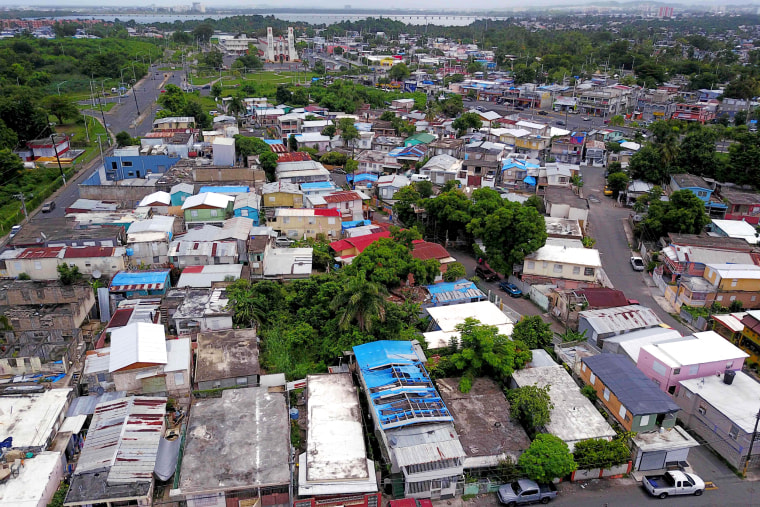SAN JUAN, Puerto Rico — A U.S. government report published Thursday found that the Federal Emergency Management Agency mismanaged the distribution of goods in Puerto Rico after hurricanes Irma and Maria, leading to delays in the delivery of food and water.
The Office of the Inspector General said it took more than two months on average for the goods to reach their final destination, and that FEMA lost sight of nearly 40% of its shipments to the U.S. territory that were worth more than $250 million. Some 98% of those shipments were meals and water, according to the report.
“Given the lost visibility and delayed shipments, FEMA cannot ensure it provided commodities to Puerto Rico disaster survivors as needed to sustain life and alleviate suffering,” the report stated.
Officials said goods sat in FEMA’s custody for roughly 48 days, with water and food experiencing shipping delays of 71 and 59 days respectively.
The office said it also conducted a survey that found it took FEMA an average of 10 days after the hurricanes to deliver the first food and water to survivors. Officials noted that while goods were airdropped immediately after the disaster, “the quantities were insufficient to meet the survivors’ needs.”
In addition, 40% of Puerto Rico’s municipalities said they had problems with expired food, and the report found that food delivered across the island included candy, cookies and other snacks lacking nutritional value.
“FEMA faced tremendous challenges meeting mission requirements because of the catastrophic nature of Hurricane Maria and multiple, concurrent, nationwide disasters,” the report stated.
Officials noted that Puerto Rico’s government also did not properly keep track of the supplies it received from FEMA, and that the goods were distributed to places including a personal residence.
FEMA agreed with four of the office’s five recommendations, but rejected findings involving the distribution of goods and other issues. The agency said it delivered a historic quantity of 63.6 million meals and 74 million liters of water from September 2017 to April 2018.
Hurricane Irma skirted past Puerto Rico’s north coast in early September 2017 as a Category 5 storm, causing more than an estimated $700 million in damage, killing at least four people and knocking power out to more than 1 million people.
Two weeks later, Hurricane Maria hit as a powerful Category 4 storm, destroying the power grid, causing more than an estimated $100 billion in damage and killing an estimated 2,975 people in its aftermath. Reconstruction is still ongoing.

